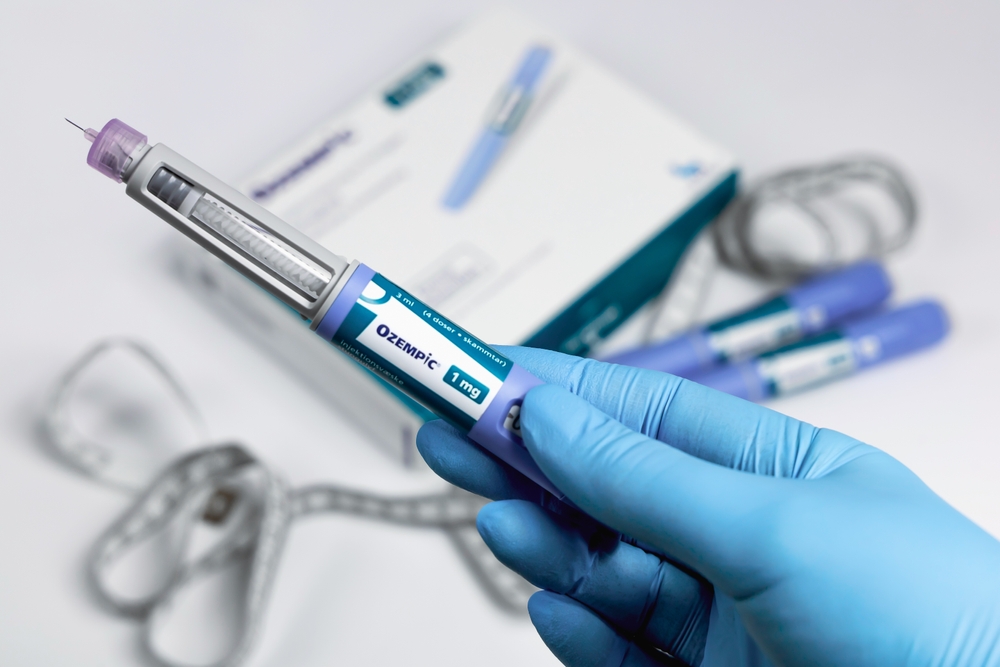In recent years, some diabetes medications have soared in popularity for their effectiveness in controlling weight loss. These drugs contain semaglutide or tirzepatide as their primary ingredients and belong to a class of medications known as GLP-1 drugs. The demand for diabetes weight loss drugs is so high that some patients struggle to find the medicines in stock, which has led to a troubling phenomenon: medical practices are unknowingly purchasing counterfeit drugs, which can cause a range of dangerous side effects. According to an investigation published in Vanity Fair, counterfeit Ozempic — one of the leading diabetes weight loss drugs — is increasingly becoming a problem.
The U.S. Food and Drug Administration (FDA) warned about counterfeit Ozempic last December, saying in a press release that pharmacies should only purchase the drug from authorized distributors. According to Vanity Fair, the agency received adverse reaction reports from patients who took the fake medicines and experienced symptoms including loss of consciousness and facial swelling. One reason that the counterfeit incidents are so concerning is that the bogus drug looks like the real thing to the naked eye — most patients wouldn’t be able to tell the difference. The FDA notes that the counterfeit injections have different needles. Still, the variations are so minor that a patient must examine the paper tab covering the needle to notice. The counterfeit drugs also included incorrect labeling and prescription information.
In February, Novo Nordisk settled lawsuits with a Florida spa and medical clinic for selling counterfeit versions of its diabetes weight loss drugs. As a result of the lawsuits, the companies cannot promote Ozempic or Wegovy.
The Counterfeit Drug Problem
Versions of fake weight loss drugs have been spotted in more than a dozen countries, according to a report from NBC News. Counterfeit drugs have swept the nation, with one study finding that it’s one of the fastest-growing criminal enterprises in the world. According to a World Health Organization estimate, the counterfeit drug market is worth up to $431 billion every year. Many counterfeit drugs arrive in the U.S. from overseas, where they are then distributed to American consumers. Diabetes weight loss medications are one of the most recent drugs to fall victim to counterfeiters.
Fake drug distributors are mainly driven by profitability — they’re able to use less expensive ingredients and sell the medications for the same price as the real thing. Additionally, the cost of producing counterfeit drugs isn’t always high. Lastly, it can be easy to fool consumers. One doctor interviewed by Vanity Fair enlisted the help of a drug investigator to determine whether an Ozempic shipment was legitimate. It wasn’t until samples were sent to a laboratory that he realized the drug was counterfeit. Each vial contained more semaglutide than it should have.
Many of the counterfeit medications originate in Turkey, with Mexico, China, India, and the U.K. also leading the fake drug market. One Turkish journalist alleged that counterfeiters bribe government officials to obtain contracts, suggesting that corruption could also play a role. While federal regulators and manufacturers attempt to get ahead of the fake weight loss medication crisis, the drugs will likely continue to be counterfeited as they continue to gain traction. Vanity Fair found that counterfeit Wegovy has been linked to one death, while other fake weight loss drugs are associated with comas and seizures. Some of the counterfeiters who manufacture the fake drugs replace the actual medication with insulin, which can be dangerous for non-diabetics to inject. Catching counterfeiters can be difficult, and many get away without punishment.
Diabetes Weight Loss Drug Lawsuits
Counterfeiting isn’t the only problem that the manufacturers of diabetes weight loss drugs are facing. These medications have been linked to severe side effects, including gastroparesis, which is a condition that causes stomach paralysis, and ileus. A patient is diagnosed with ileus when the bowel can’t move waste out of the body. As a result, patients are filing diabetes weight loss drug lawsuits against Eli Lilly and Novo Nordisk, two of the largest manufacturers of GLP-1 drugs. A diabetic woman filed the first lawsuit last August, and many have since followed. The lawsuits allege that the manufacturers knew or should have known the risks of their diabetes drugs but didn’t warn patients and physicians about the potential consequences. Earlier this year, the lawsuits were consolidated into multidistrict litigation (MDL) and transferred to the U.S. District Court in the Eastern District of Pennsylvania.
Last October, the FDA updated the Ozempic and Wegovy warning labels to include the risk of ileus after the agency received reports of 20 cases, including two deaths. There’s also been a suggested link between diabetes weight loss drugs and suicidal thoughts — while an FDA review in January couldn’t establish a connection, researchers said they couldn’t rule out the risk. In April, a medical committee in the European Union held a meeting to discuss reports of suicidal thoughts after taking Ozempic and similar drugs.
Diabetes weight loss medications have been heralded as miracle drugs by many of the patients who have experienced weight loss after starting treatment. Still, they can cause devastating side effects, blindsiding users who didn’t know about the potential risks. If you’ve experienced gastroparesis, ileus, or other serious symptoms after taking diabetes weight loss drugs, you may be entitled to compensation from the drug’s manufacturers. Meeting with an attorney who understands diabetes weight loss drug cases to discuss your legal options and whether you should move forward with a lawsuit is essential.


